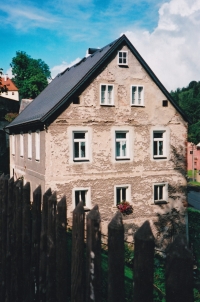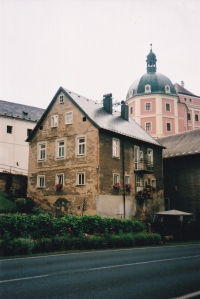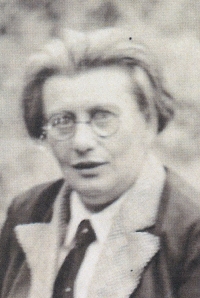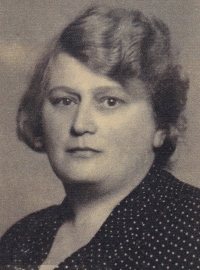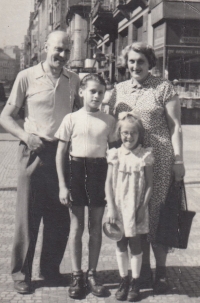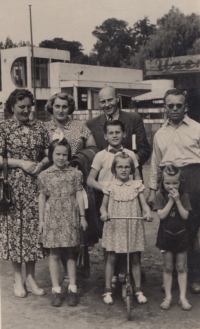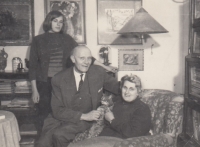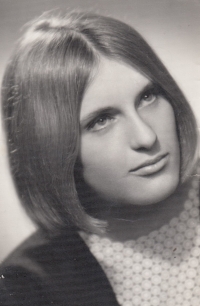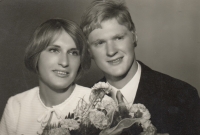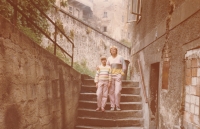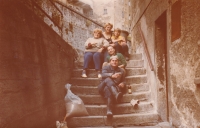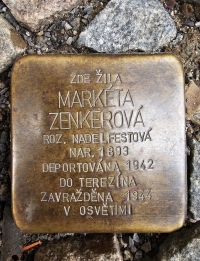Pardubice was not my mother’s favourite. My grandmother was deported from there to Terezín
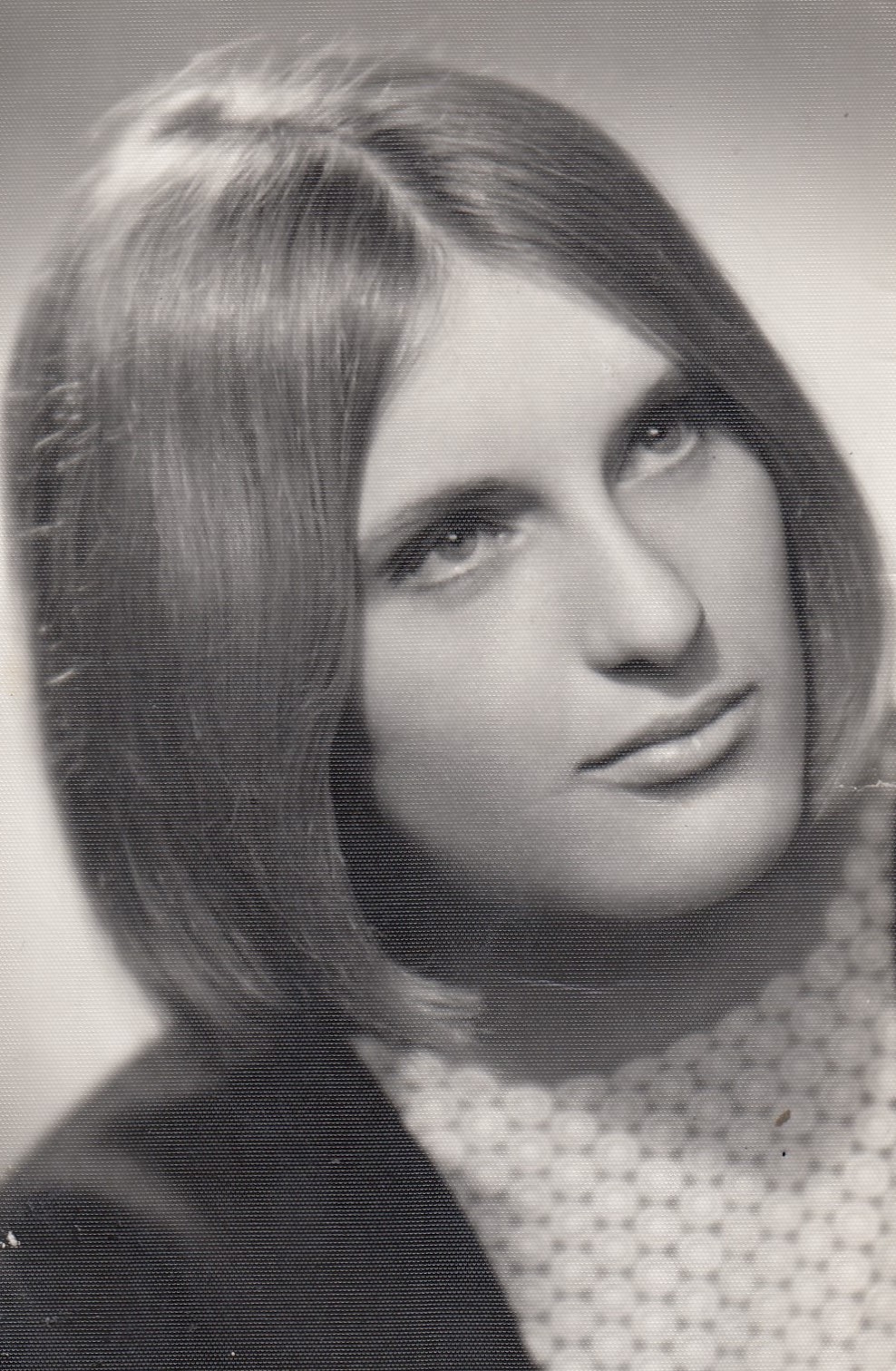
Download image
Dagmar Dopitová was born in Pardubice on 9 October 1946. Her mother hailed from a Jewish family. Her ancestors came from Prague to Bečov nad Teplou and her great-grandfather, attorney Ignatz Nadelfest, bought a house there in the late 19th century. When the Nazis occupied the borderland, a part of the family moved to Pardubice. Witness’s grandmother Markéta Zenkerová was deported to Terezín on denunciation in 1942 and to Auschwitz two years later, where she was murdered. Witness’s other ancestors also perished in concentration camps. Dagmar Dopitová only began mapping their lives after the Velvet Revolution and had Stolpersteine - stones of the disappeared - planted in their memory. Dagmar Dopitová’s father came from a saddler family but worked as a designer and architect. His family lost their saddlery workshop and house in nationalisation. The witness’s parents married during the war and their mixed marriage had its consequences. Her father had to enter a German labour camp because of his marriage to a Jewish woman. Dagmar Dopitová was born after the war and had a brother five years older. She completed studies at a high school in Pardubice and then at a technical high school in Hradec Králové. She graduated in 1966 and immediately joined Pozemní stavby where she stayed until retirement. She took care of her mother who was traumatised by the Holocaust for the rest of her life. She had lived with her husband Jaroslav Dopita for 54 years at the time of filming. They took care of the returned house in Bečov nad Teplou and lived in Pardubice.
